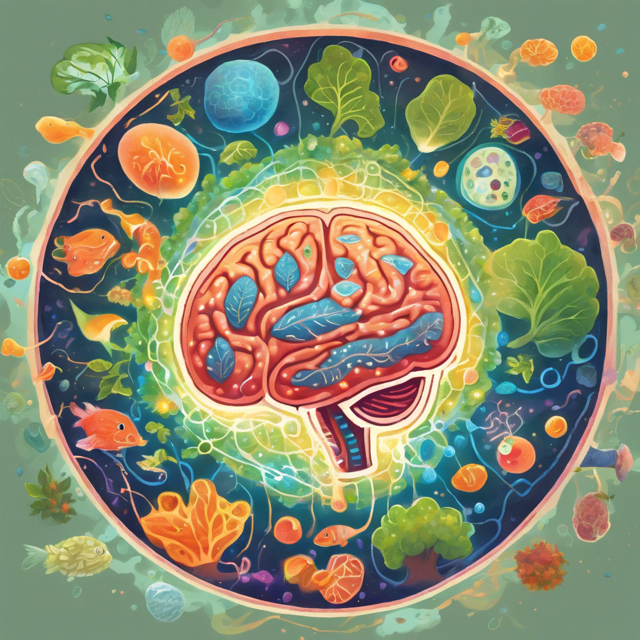Shaping Future Minds
NeuroTips #16 | October 2024
I’m back from a much-needed break and in that time the world has continued with its on-going shifting. What’s for sure is that humans, AI & tech like the early part of a relationship, are working out how they are going to rub together.
With that in mind, are you like me asking yourself “What’s needed from me as a leader and a human being?”. Not an insignificant question!
Change and shifting takes reflecting. To help me pause and reset my thoughts, and I’m hoping it will do the same for you, today’s read considers:
1. Human Leadership – what’s it all about?
2. Brain Health – why is it important?
3. 2024 Mental Health Day communications idea.
4. One Neuro-hack. One Neuro busting myth.
The Leaders Brain
In a neuro-coaching session last week my client, who has a unique way of seeing what motivates people, said:
“The need for human leadership skills is higher than ever in a world where everyone thinks the chatbot has the answer!”
An obvious observation, but what are human leadership skills?
I am sure there are numerus definitions, but coming from a ‘what gets the best from our brains’ perspective, I believe you can’t begin to define human leader skills unless you start by considering behaviours:
What behaviours are needed to meet future dynamics?
What is my role as a leader? As a person? For individual talent?
With the most important question of all being “How do I and my co-leaders create the right conditions and environment for change to happen comfortably and safety?”
What is certain is that rethinking will be your new compass, as we talked about in our July Neuroletter. Cognitive certainties, unconscious biases, entrenched habits that currently give you security will need to shift.
Your own sense of ‘self’ comes into question, asking yourself how “leading change may mean starting with changing myself” a very popular area with my senior clients.
As brain enthusiasts you know that these cognitions and behaviours are all deeply networked in your brain and even if you had your drivers brain manual, your brain will resist changing them, because it takes energy, awareness and being comfortable with uncertainty. Not a popular place for our brains to operate in.
So here are some ways you can start to think about the future:
3 Starters – Human Interaction is the Star
o Begin by asking your board & staff what they think, feel, and believe the future needs.
o Start conversations with your network to find out what other businesses are saying. What trends are emerging?
o From these initial conversations can you develop a skills, culture and roles matrix highlighting new interfaces with human-AI collaboration?
The Obvious:
Be mindful of the emotional needs of your staff and customers as our brains will naturally be defaulting to worry and anxiety about the future – the soft skills have become the hard skills, humans are complex.
The future focus needs to be on “Too many forget that AI is only as good as the human using it” from our 3rd Brainy Podcast guest the brilliant Ross Stevenson.
And in my experience big declarations don’t change things, small incremental steps do.
To access our knowledge and pick our brains drop us an email for more information on our ‘Neuroscience of Future Leadership’ workshop. Designed for thought leaders in their own fields who embrace the need to change the status quo and to come together and explore.
Curious? We’re eager to begin the conversations.
Brain Health - Sweet Spot
Each day we wake up as a slightly different person as our mental states are influenced by daily external factors. We know from many different studies and books the importance of the quality of our diet, exercise, sleep and our environment on our brain health, but little is known about how long these interventions have on our brain, and specifically the effect on brain connectivity.
A new study published in PLOS Biology opens the window on how our daily mental states, experiences, behaviours and physical activity leave a lasting imprint on our brain’s internal superhighway connectivity. This longitudinal study used brain scans and data from wearable devices to track the brain activity and physiological states of a single participant over 133 days.
Contrary to belief what the study found was that brain connectivity is influenced by immediate events for up to 15 days shaping the behaviours and the brains functional connections.
What this means is that short-term fluctuations in our environment and physiological states plays a much more sustained role in brain dynamics, and that daily life has a much more complex effect on brain function than previously thought.
What we don’t know and that further studies will explore, is if these brain-behaviour relationships vary across different individuals with varied lifestyles and health conditions, or if changes in brain connectivity influence future behaviour and physiological responses.
My take-out is that we need to be mindful of how we live our lives. Caring for the mental and physical wellbeing of ourselves and others has a long-term impact on our brain health, mood states, our behaviours and overall health.
Simply - what you put in, is what you get out, especially if you want to age well and stay sharp. It is all too easy to lose your ‘self-care, so remember:
“Look after yourself like you would look after someone else” Dr. Jordan Peterson.
And which evidence studies show has huge health benefits for your own brain.
World Mental Health Day 2024 – Now for some creativity!
Move for your mind.
However and where ever you are working, this well-crafted campaigns made me chuckle and it also gets the message home so effectively - Your Desk is Your Killer!
Thank you, Asics, Golin and the masterful Succession star Brian Cox for reminding us of the importance of regular desk breaks and rest for our physical, mental and emotional wellbeing.
One Neuro Hack – Chunking
Your working memory can typically only handle up most of 4 pieces of information (Nelson Cowan). Boost your focus and memory by breaking big tasks or information into smaller, manageable chunks. This reduces mental overload and helps your brain process more efficiently.
One Neuro Busting Myth
I read on a Linked In post from a “Neuroscience person” that male brains are bigger and better!
For goodness sake this is a much debunked NeuroMyth!!!!!
The slightly larger size of the male brain compared to the female brain is not considered by science significant in terms of intelligence or cognitive ability. This size difference is largely attributed to the fact that, on average, men tend to have larger body sizes than women, which correlates with overall brain volumes. Obvious!
Brainy Podcasts #12 Available Now - The one that talks about Brain Health and Wealth!
Fancy a walk around your brain? This is the latest episode where Tracy and I take a deep dive into how leaders and individuals can transform their brain health & wealth to optimise their potential for success. It's full of invaluable brain and mindset insights, and plenty of actionable takeaways.
Including - Why should you avoid the ‘pop and pings’? What’s the love hormone got to do with the magic of cuddles and smiles? How does finding mutual respect take trust to jettison the fear of Imposter Syndrome. Reflection on the honesty and emotional intelligence needed for self-awareness and emotional regulation plus the skill of challenging the task, not the person. Enjoy!
Soraya is an expert in applying neuroscience insights to business transformations, with a focus on behaviour and change. A former global suit at Ogilvy & Mather, she is an Applied Organisational Neuroscientist, Motivational Speaker and C-suite leadership coach. Her passion lies in the intersection of Human Capital, where brain science, human skills, and Digital come together to shape future mindsets and drive meaningful collaboration.
If you’re curious to explore how you can get everyone to bring all their brains to work and enjoy their lives, then let’s have a chat.
See you next month. In the meantime, we value all your contributions and helping us reach more readers – Enjoy!




